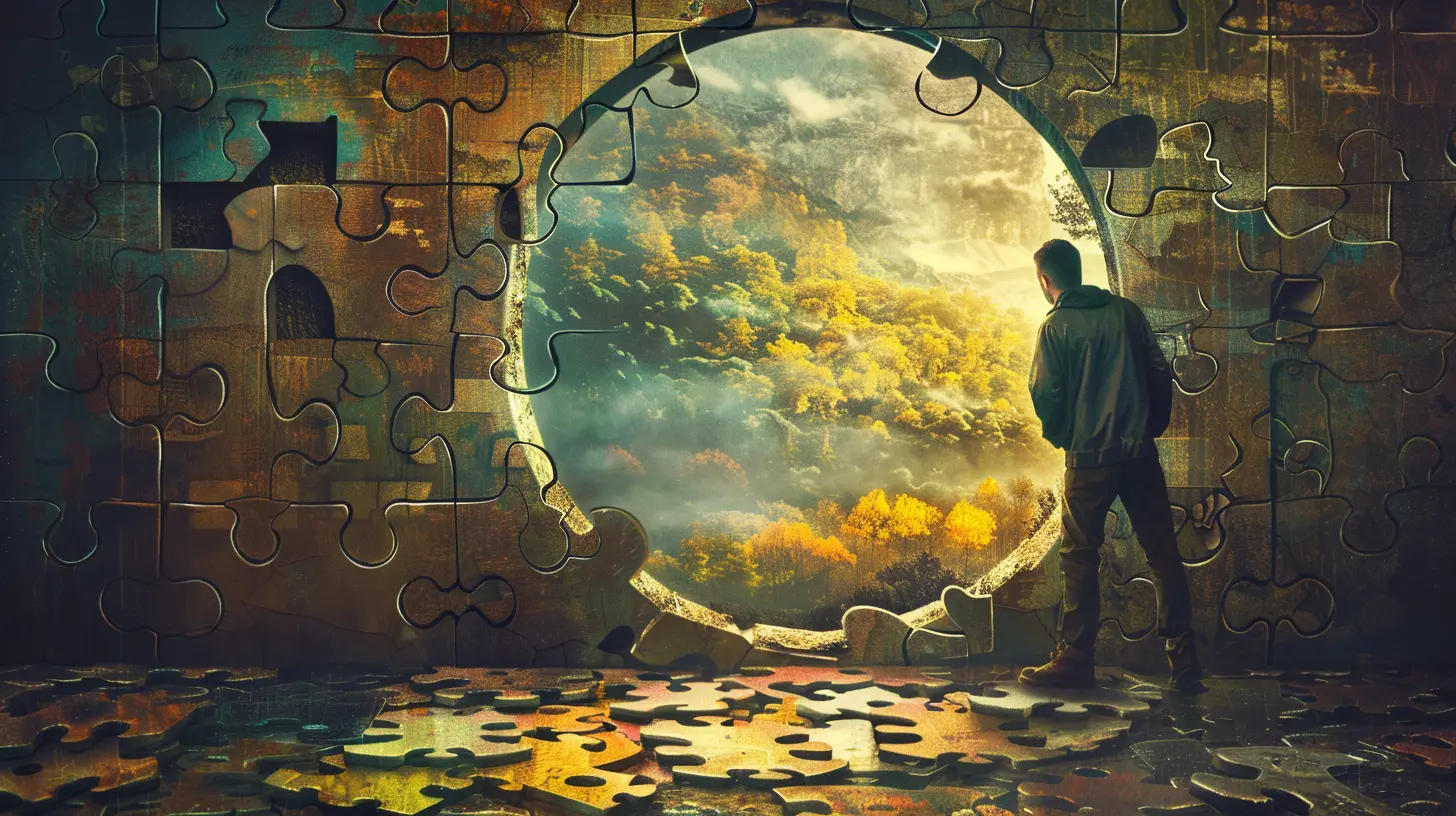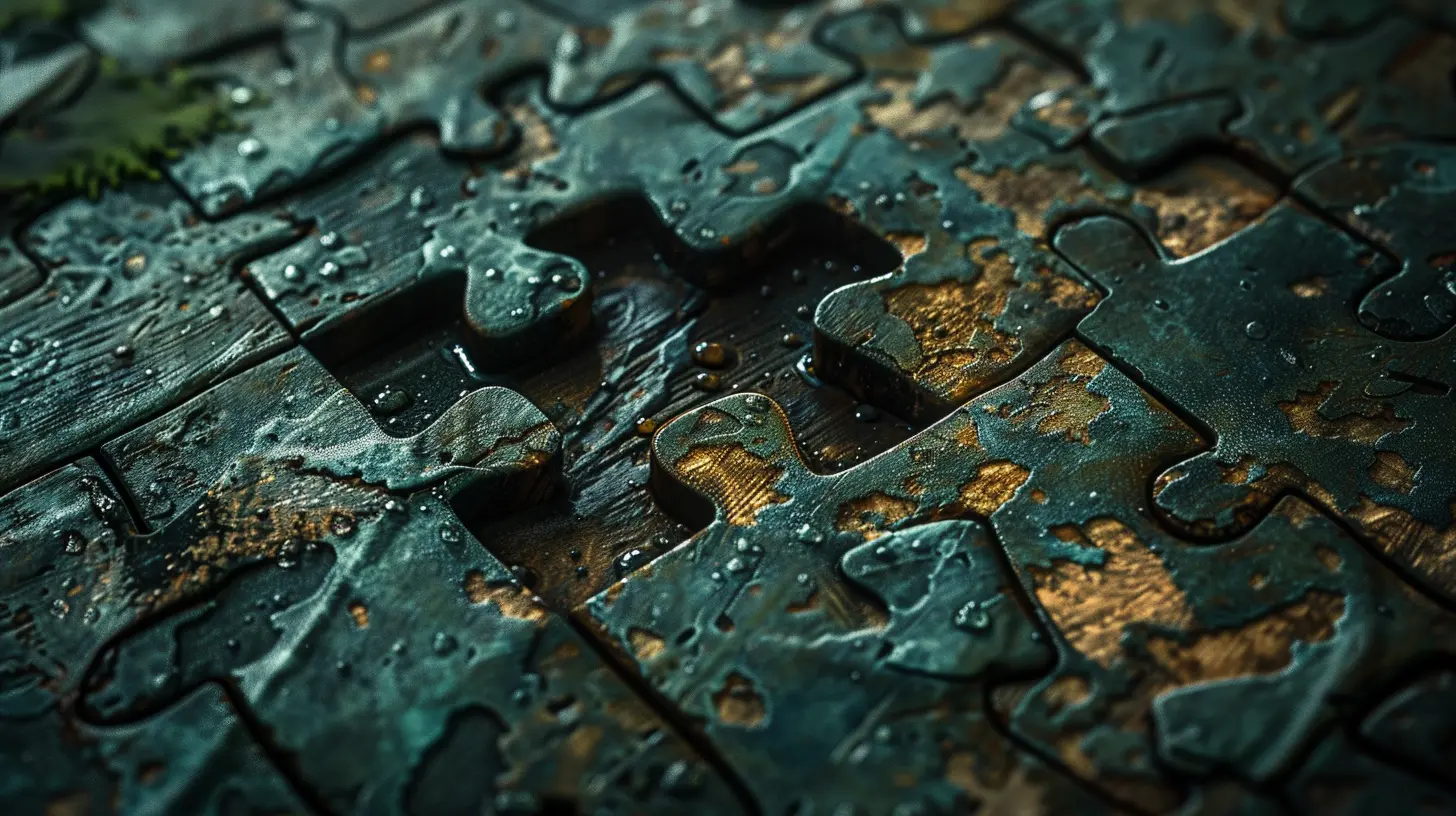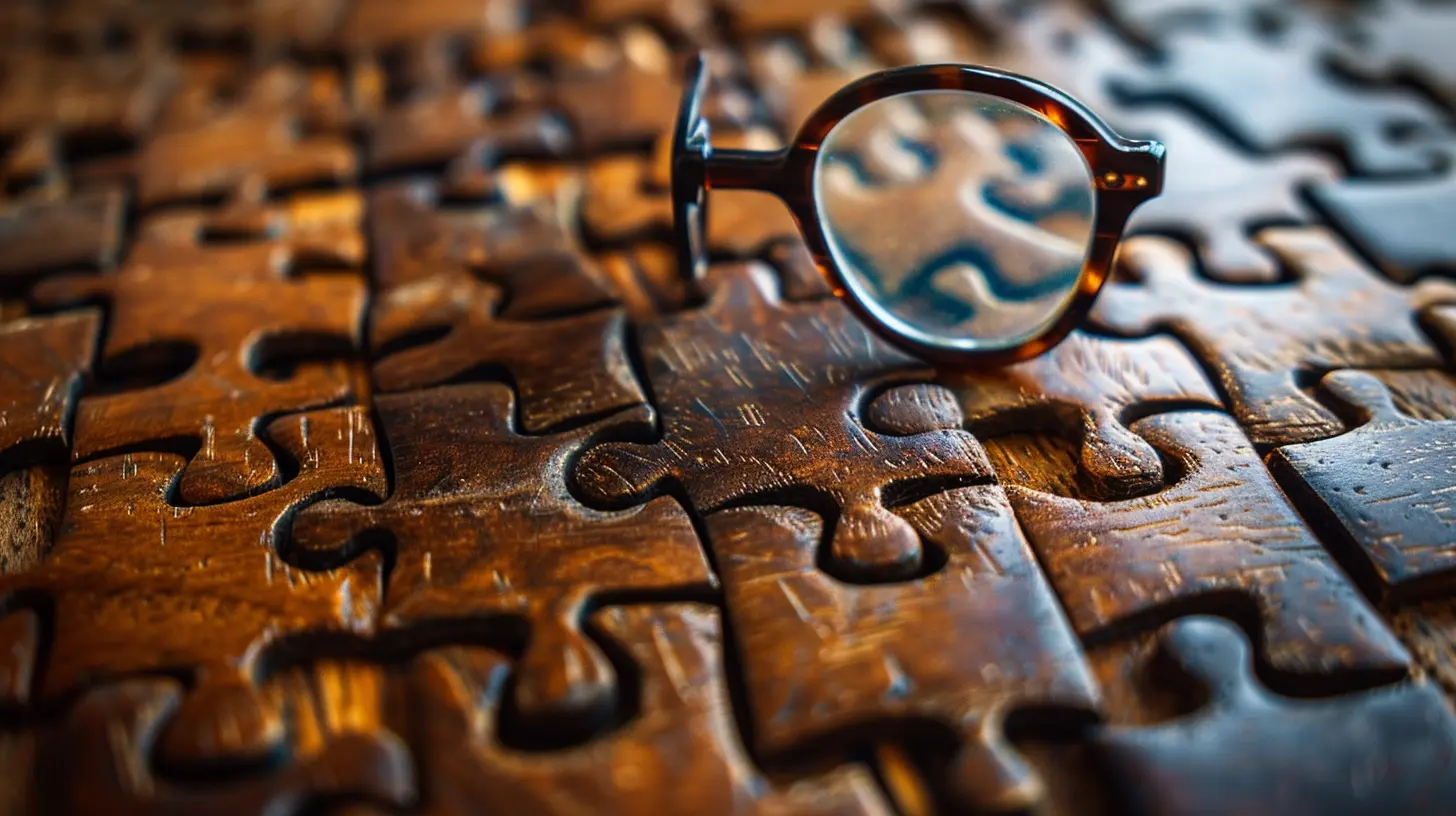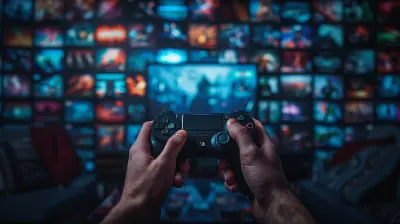How to Master Complex Puzzles in Adventure Games
18 June 2025
Ever found yourself stuck in an adventure game, staring at a puzzle for way too long, questioning all your life choices? You’re not alone. Complex puzzles can be equal parts satisfying and frustrating, especially when they act as gatekeepers to the next exciting area or story beat. But cracking those head-scratchers can be deeply rewarding—like solving a mystery only you could figure out.
So, what's the secret sauce to mastering these mind-bending obstacles? It's not just about being "smart." It's about thinking differently, staying curious, and applying a few tried-and-true strategies. Whether you're a newbie trying to up your game or a seasoned adventurer looking for an edge, this guide will walk you through the essentials.
Let’s dive into how to master complex puzzles in adventure games without losing your sanity.
🧠 First Things First: Understand the Puzzle Types
Before we jump into techniques, let’s get something straight: not all puzzles are created equal. Adventure games love variety. Think of them like different flavors of brain ice cream.1. Logic Puzzles
These make you think in a structured way—think Sudoku-style grids or riddles. If the puzzle feels like it could be in a Mensa test, you’re dealing with logic.2. Environmental Puzzles
Ah, the classics. You push a crate, pull a lever, rotate a statue—basically interacting with the game's world to solve the puzzle.3. Inventory-Based Puzzles
You know the deal: combine the stick and chewing gum to make a key. These are about clever uses of items you've collected.4. Pattern Recognition
You’ll see symbols, colors, or sequences that repeat. If it feels like “wait a second, haven’t I seen that before?”—you’re probably onto something.Knowing what kind of puzzle you’re dealing with is step one.
🔍 Observation Is Your Superpower
Here’s a golden rule: slow down and really look at everything. Adventure games are built by people who love sneakily hiding clues in plain sight.- Read every sign.
- Inspect every item.
- Listen to dialogues—characters often drop hints.
- Check walls, floors, and ceilings. You’d be surprised where hints can pop up.
Think of yourself as Sherlock Holmes in a digital world. Trust me, 90% of puzzles become a lot easier when you realize the answer has been staring you in the face the whole time.
🗺️ Map It Out—Literally or Mentally
Some puzzles span multiple areas or require you to remember patterns or sequences. This is where making notes helps big time.- Use screenshots (if your platform allows).
- Jot down codes, symbols, or sequences in a notepad.
- Sketch out a quick map if locations or paths are part of the puzzle.
It might feel old-school, but this kind of mental bookkeeping gives you clarity. And hey, your brain will thank you later.
🧩 Break it Down, Don’t Freak Out
Complex puzzles can be overwhelming. But here’s a pro tip: break them down.Let’s say you’re faced with a giant wall full of rotating gears and clocks. Don’t try to solve everything at once. Focus on one part—maybe just the top corner. Look for patterns or movements. Small progress can snowball into a full solution.
Trying to tackle everything at once is like juggling flaming swords while blindfolded. Not ideal.
🔁 Trial and Error—But Make It Smart
Yes, poking around randomly can eventually lead to progress, but don’t just guess for the sake of it. Make educated guesses and learn from each attempt.Every failed attempt is data.
Did turning that lever open a hidden panel? Did combining two items change how they looked? These little feedback loops are key.
Keep refining your approach like a scientist testing a hypothesis. It’s less about luck and more about learning what doesn’t work to find what does.
🧠 Use Lateral Thinking
Adventure game puzzles are notorious for asking you to think outside the box—even if it’s a weird, ridiculous box. (Looking at you, Monkey Island.)Sometimes, the logical next step isn’t what you’d do in real life—but it's what makes sense within the game’s own quirky logic.
Ask yourself stuff like:
- What would this character want or need?
- Is there something silly or humorous I haven’t tried?
- Have I used this item in a weird way before?
Treat the game world like a sandbox where absurdity is fair game.
🛠️ Mix, Match, and Experiment
Don’t be afraid to experiment with items or mechanics. Sometimes the solution involves combining things you wouldn't expect.Think: using a mirror to reflect light in a dark tomb or stacking items to reach a high ledge. The more you play with what the game offers, the better you get at predicting its logic.
Remember, you’re not just playing a game. You’re trying to understand how the developers think. Kind of like mind-melding with them.
⏳ Don’t Force It—Take a Break
Look, your brain isn’t a machine. If you’ve been stuck for more than 20 minutes and feel like throwing your controller, step away.Sometimes, your subconscious keeps working on the problem even when you’re not actively thinking about it. You’ll come back fresh and spot something you completely missed before.
It’s like magic. Or science. Or both.
🧑🤝🧑 Use Your Tribe—Community Helps
There’s no shame in seeking help. If you've exhausted all options, online forums, walkthroughs, or YouTube playthroughs can offer just enough hints without ruining the whole thing.Try to look for spoiler-free tips or nudges. This way, you still get the satisfaction of solving it mostly on your own.
Think of it as asking a friend for a clue instead of copying their homework.
📚 Learn From the Masters
Some adventure games are known for their legendary puzzle design. Playing games like:- The Legend of Zelda series
- The Witness
- Portal 2
- Myst
- Grim Fandango
…can actually teach you a lot about how great puzzles work. You’ll start spotting common tricks, tropes, and even developer habits.
By reverse-engineering what works in excellent puzzle design, you become better at cracking them in other games too.
🔄 Repetition Builds Intuition
The more you engage with complex puzzles, the better you get at spotting patterns and understanding game logic.After a while, you get puzzle intuition. It’s like a gut feeling: “Hmm, I bet if I move this here, that’s going to trigger something over there.” And boom—you’re right.
The only way to develop this intuitive sense? Keep solving puzzles. Your brain’s basically getting a workout.
🧩 Puzzle-Solving Toolkit for Adventure Games
Here’s a quick cheat sheet to keep handy:| Tool/Tip | When To Use It |
|----------|----------------|
| Notebook or App | For codes, patterns, paths |
| Screenshot Button | To capture clues |
| Pause and Think | When stuck, avoid frantic clicking |
| Take Breaks | For mental clarity |
| Ask Questions | Who, what, where, why, how? |
| Observe Carefully | Clues are everywhere |
| Try Everything | Within reason! No random spam-clicking |
This isn't just about having tools—it's about using them mindfully.
💡 Bonus: Psychology Behind a Great Puzzle
Good puzzles trigger your brain’s reward system. They create tension, confusion, the "Aha!" moment, then relief and satisfaction. That’s a chemical cocktail of dopamine and adrenaline right there.Understanding this can help you embrace the struggle rather than avoid it. The frustration is part of the process. You're climbing a mental mountain, and reaching the summit should be hard—but worth it.
So the next time you’re stuck, remember: frustration is just success in the making.
🎮 Final Thoughts: Turn Frustration into Fun
Mastering complex puzzles in adventure games is all about shifting your mindset. Instead of seeing puzzles as walls, think of them as doors. Doors that open into deeper stories, richer gameplay, and that sweet, sweet joy of being clever.Keep your eyes open. Don’t rush. Be curious. And don’t be afraid to fail. With these tools and tips in your quest log, you’re more than ready to tackle any brain-bender that stands in your way.
So go ahead, dive back into that game, and show that puzzle who’s boss.
all images in this post were generated using AI tools
Category:
Adventure GamesAuthor:

Luke Baker
Discussion
rate this article
2 comments
Zinna McQuiston
Embrace the challenge! Mastering complex puzzles in adventure games isn't just about logic; it's about creativity, patience, and a willingness to explore. Every twist and turn is an opportunity to grow. Dive in and unleash your inner problem solver!
June 22, 2025 at 3:01 AM

Luke Baker
Absolutely! Emphasizing creativity and exploration is key to mastering complex puzzles. Thanks for the encouragement!
Amira Riggs
Mastering complex puzzles is like dating a Rubik's Cube—frustrating at times, but the satisfaction of solving it is worth every twist and turn! Just remember: when in doubt, hit ‘reload’ and pretend you were testing a new strategy!
June 18, 2025 at 3:56 PM

Luke Baker
Absolutely! The journey of mastering puzzles mirrors the challenge of a Rubik's Cube—frustrating yet rewarding. Embrace the twists and turns, and don't hesitate to refresh your approach!


